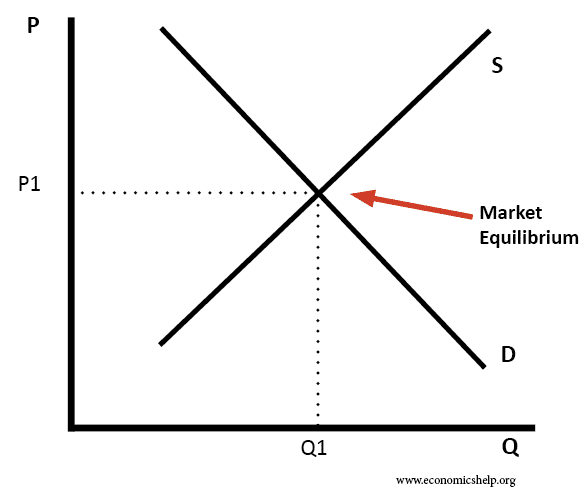It’s the time of the year when many students are getting to start economics for the first time. It can be a little confusing with so many new concepts and words. But, if we had just one lesson, what could we teach about economics?
Society wishes to optimise the distribution of resources. Economics considers how and why we produce and consume in certain ways. Economics also examines how we can improve the distribution of resources. (See: Fundamental problem of economics)
1. Micro Economics
Micro economics is concerned with economics at the level of the individual and firm. i.e. small snapshots of the economy.
Scarcity and Opportunity Cost
Because we have finite resources, we need to constantly make choices. If we devote resources to producing more hospitals, the opportunity cost is perhaps transport spending we cannot make. Opportunity cost is an important term which refers to what we have to forego when certain choices are made.
Economic Systems
Different economies have tried to resolve the fundamental economic problem in a variety of ways. The Soviet Union was a command (Communist) economy where the government owned the means of production and decided what and how to produce. At the other end of the spectrum is a free market; in a pure free market there is no government intervention and we leave goods and services to private firms and individuals.
In practise most economies are mixed economies with a mixture of government intervention and private enterprise.
Market Mechanism
One of the essential aspects of economics is the theory of supply and demand. This suggests prices will be determined by the interaction of market supply and market demand.
Supply and Demand Diagram
If the price was below the equilibrium, demand would be greater than supply. Firms would have excess demand so would be tempted to raise prices.
If a good became more popular, demand shifts to the right. This increase in demand causes firms to:
- Increase the supply of the good
- Increase the price
This is an example of how a free market can respond to changing market conditions. The increase in demand leads to higher price and encourages firms to supply more. This is what Adam Smith referred to as the ‘invisible hand of the market’
Adam Smith suggested that markets would have an efficient allocation of resources, even if people pursue their selfish ends.
Command economies are seen as inefficient because the government often has poor information about what and how to produce. Also, if people work for the government they may have less incentive to work hard.
Market Failure
Most economies are mixed. They leave many industries to the free market, but, there is also government regulation and government intervention in certain industries. The government need to intervene because the market often fails to allocate resources efficiently. Examples, of this ‘market failure‘ include:
- Monopoly Power – when firms dominate an industry and can set high prices
- Externalities – When producing a good causes harm / benefit to a third party. For example, in a free market there may be too many cars on the road leading to pollution and congestion, which reduce the welfare of society.
- Merit / DeMerit Goods – Goods where people make bad choices. e.g. overconsuming ‘dangerous’ goods such as cigarettes and drugs.
- Public Goods – Goods which are not provided by the free market because firms do not provide them.
2. Macro Economics
Macro economics is concerned with the national and global economy. It is concerned with the overall Demand in the economy. Rather than looking at demand for a particular good, we look at the total (Aggregate) Demand in the economy. The main objectives of macro economics are:
- Full employment – i.e. keep unemployment very low
- Positive economic growth. In the UK, a target for growth is about 2.5%. This means the GDP – National Output (roughly speaking the wealth) of the economy is increasing each year
- Low Inflation. Inflation occurs when general prices rise. Low inflation helps to maintain greater stability in the economy.
- Reasonable balance of Payments. Balance of Payments on current account is about import and exports of goods and services.
Macro economics is constantly in the news. For example, in recent years, we have heard about the credit crunch and recession. In particular, there has been much interest in the best response to dealing with a recession. For example, can governments use Fiscal (government spending and tax) and Monetary Policy (interest rates) to get the economy out of recession.
Further Reading

